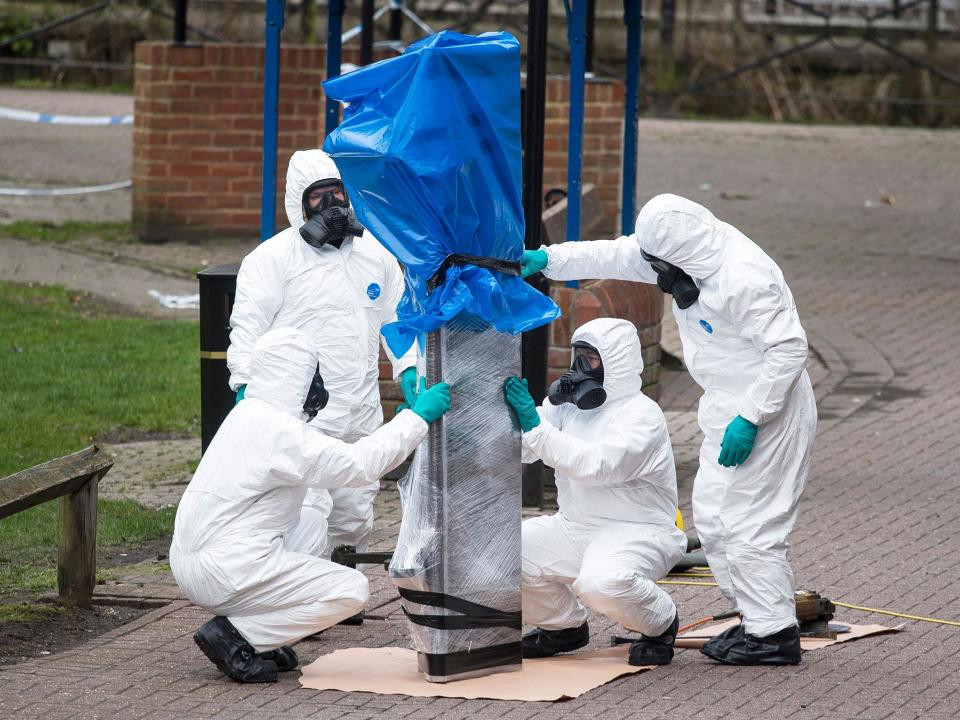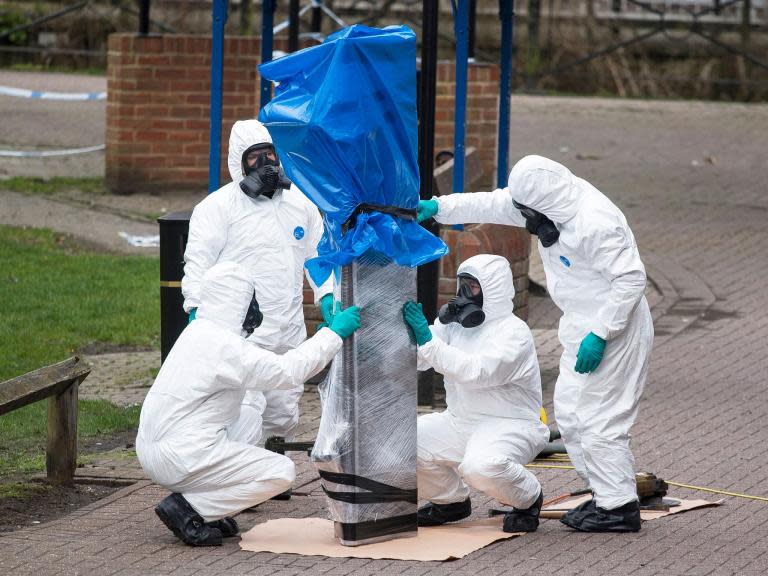Salisbury attack: Russia claims Skripals were poisoned using toxin possessed by UK and US
Russia’s foreign minister has claimed Sergei and Yulia Skripal were not poisoned by nerve agent novichok, but a separate chemical possessed by the UK and US.
Sergei Lavrov said Moscow had received information from a laboratory in Spiez, Switzerland suggesting the Russian double agent and his daughter were exposed to a non-lethal substance known as BZ.
He claimed the laboratory had passed Russia confidential information after analysing samples of the agent used in the attack on the Skripals in Salisbury last month.
Mr Lavrov said the toxin was not produced in Russia, but was in service in Britain, the United States and other Nato nations, Russian state media reported.
"Based on the results of the examination, traces of the toxic chemical BZ and its precursors, related to chemical weapons of the second category in accordance with the Convention on the Prohibition of Chemical Weapons, were found in the samples,” Mr Lavrov said, according to state-owned Sputnik News.
“BZ is a nerve agent temporarily disabling a person. The effect is achieved within 30-50 minutes and lasts up to four days."
Mr Lavrov noted the Organisation for Prohibition of Chemical Weapons (OPCW) had mentioned neither novichok, nor BZ in its independent report into the poisoning.
However, the OPCW did say its scientists had “confirmed the findings of the United Kingdom relating to the identity of the toxic chemical”.
Mr Lavrov nonetheless insisted: “If, of course, the OPCW refutes the fact of using the laboratory of Spiez, it will be interesting to listen to its explanations."
Britain has accused Russia of carrying out an attempted assassination of Mr Skripal, an allegation Moscow has routinely denied.
He was found unconscious with his 33-year-old daughter on a park bench on 4 March, with medical staff later determining they had been exposes to a nerve agent.
Ms Skripal is recovering from the attack at a secure location after being discharged from hospital on Monday. Mr Skripal remains seriously ill in hospital, although his condition is longer thought to be critical.
Government ministers say there “military grade” nerve agent used in the poisoning was of a type known to be manufactured in Russia and would have required state resources to produce at the purity observed in samples.


